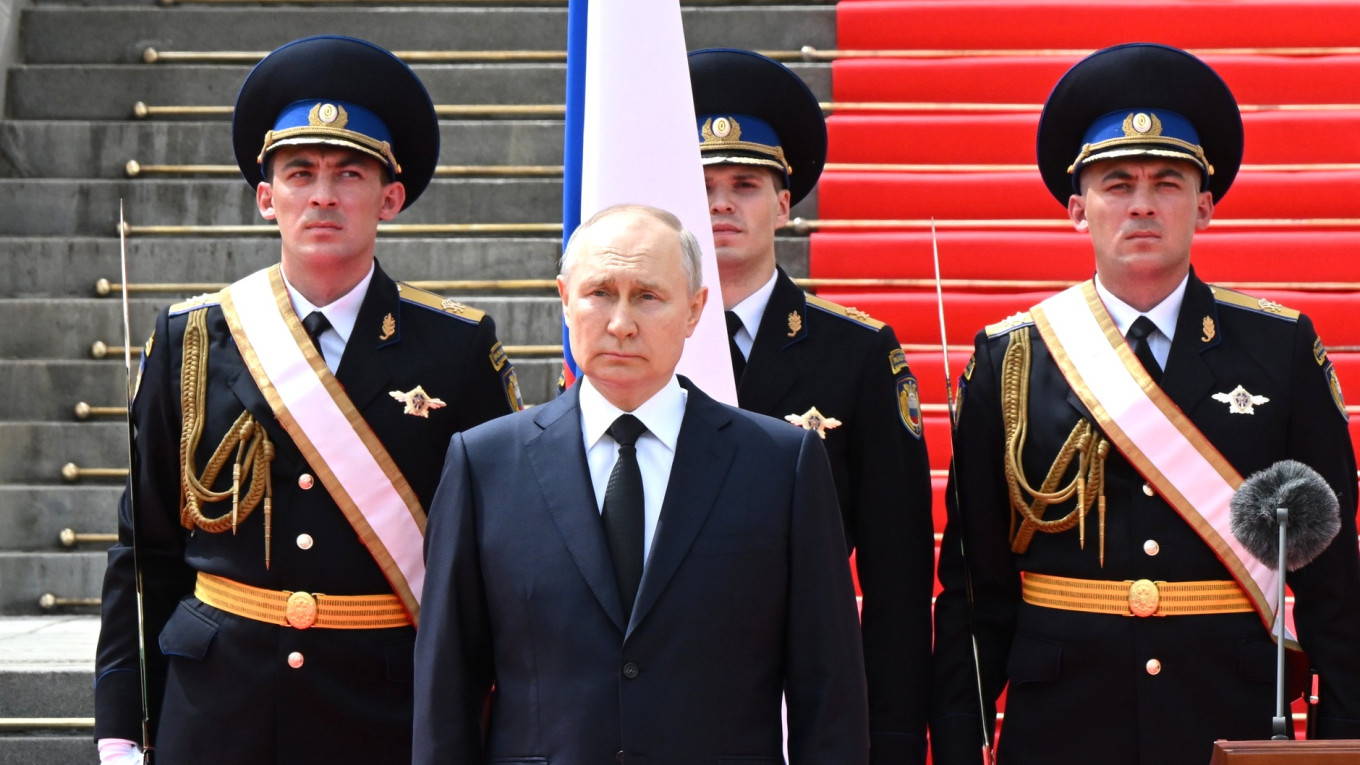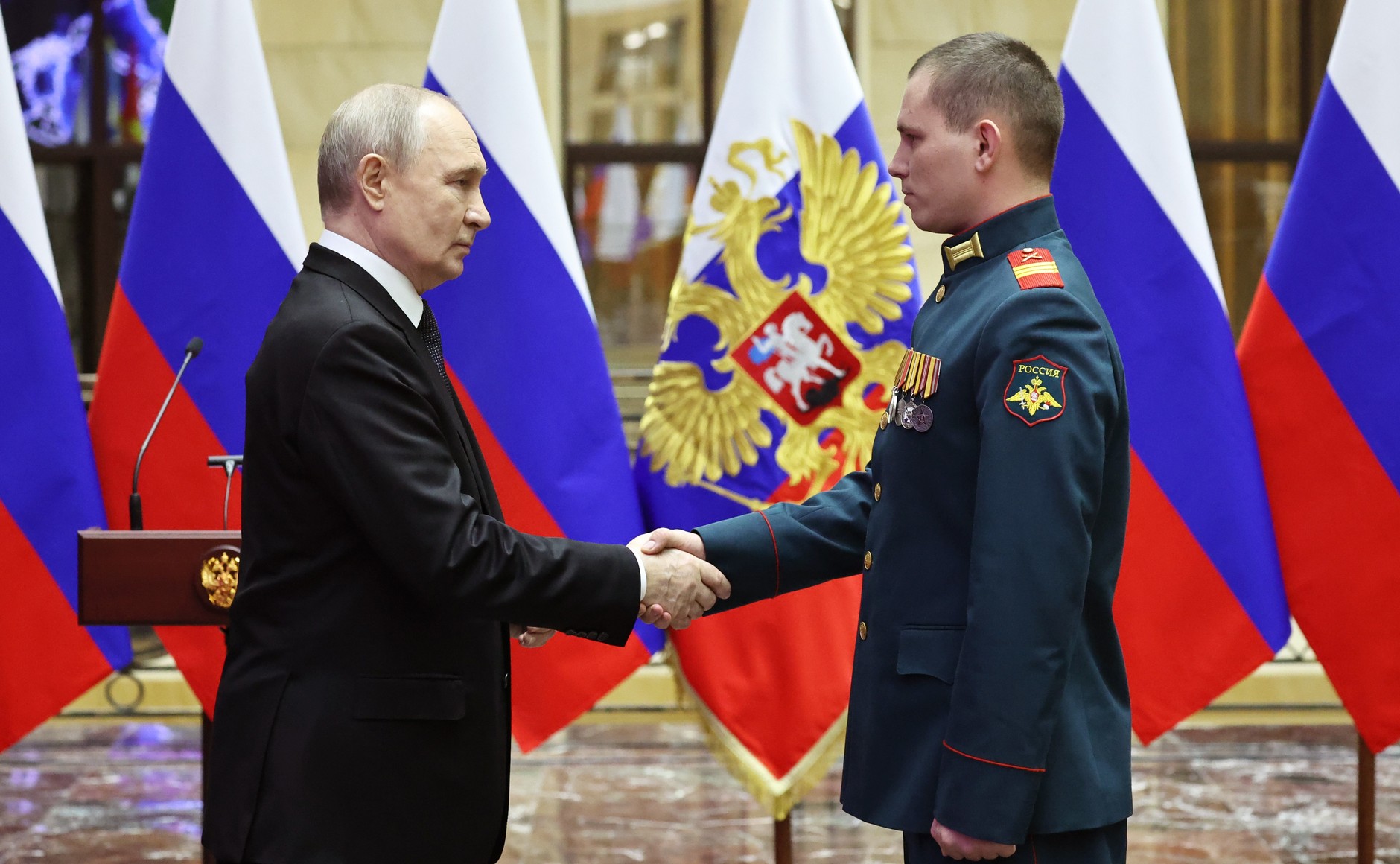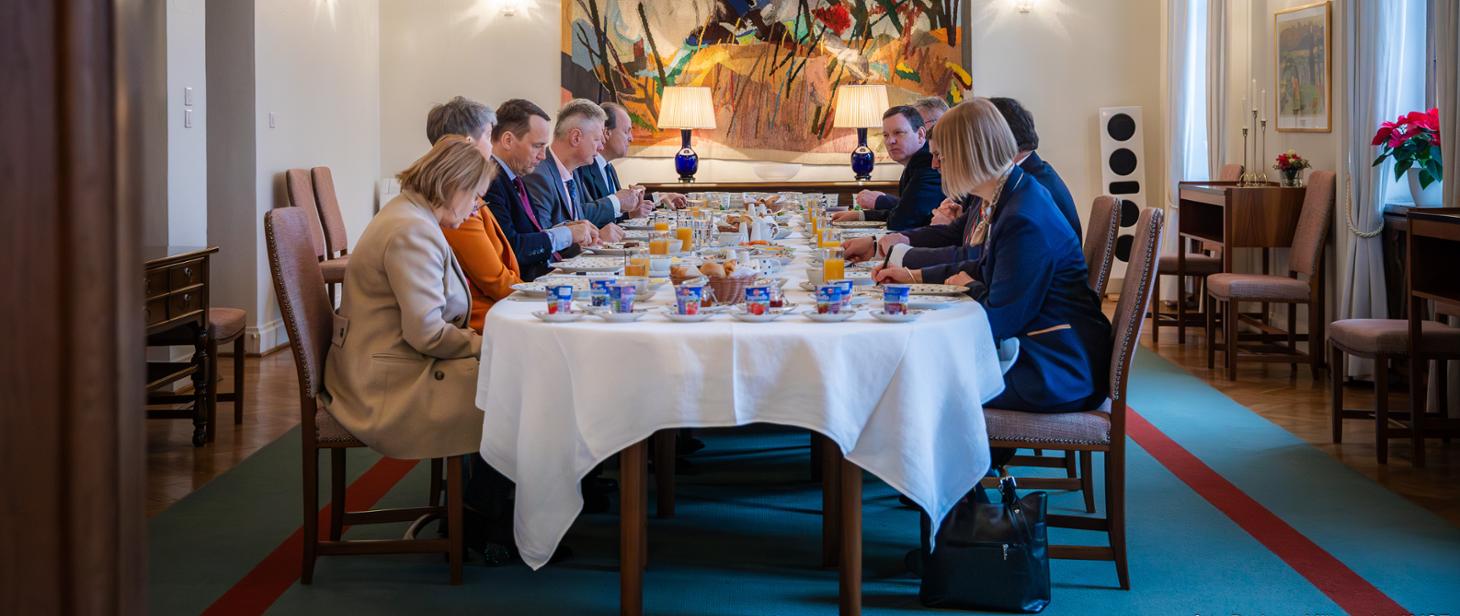
Failures of Putin Regime Distort Russian Political Perspectives
Failures of Putin Regime Distort Russian Political Perspectives
Questions about the drivers, participants and consequences of the Wagner Group mutiny on June 23 and 24 are set to remain unanswered as the Russian leadership finds it necessary to close that shocking page. President Vladimir Putin has executed a sharp turn from describing Yevgeny Prigozhin’s escapade as “high treason” and a “stab in the back” (without pronouncing his name) to pretending that political business has returned to a perfectly normal pattern (see EDM, June 26). Expert discussions are firmly directed to supporting this updated narrative, despite the lingering suspicions that, even before Prigozhin’s “march for justice,” there was not any “normalcy” in the Kremlin’s decision-making (Kommersant, July 1). The weakness of Putin’s grasp on power and the shallowness of his authority in Russian society, which remained remarkably indifferent to the unfolding political crisis, were exposed so crudely that new layers of camouflage are virtually useless (The Moscow Times, June 27).
As far as armed uprisings go, Prigozhin’s long-brewing demarche was neither here nor there: not strong enough to qualify as a coup attempt and too impactful to be merely a “protest against injustice” (Re: Russia, June 30). The Wagner chief cuts an odd persona—hard-core criminal turned warlord—on the Russian political arena so populated with bureaucrats, courtiers and oligarchs, and his anti-elite populism left him without many allies (Svoboda, June 30). The mutiny had little chance of succeeding, but the capture of a major military headquarters in Rostov-on-Don and the absence of any resistance for the long march toward Moscow opened the eyes of those confused and corrupt Russian elites who are looking for a way out of the looming disaster (Riddle Russia, June 27; Novayagazeta.eu, June 29). Mutinies often pave the way for more effectual coups, and by historical coincidence, June 26 marked the 70th anniversary of the Politburo meeting where Lavrentiy Beria, the heir apparent to brutal dictator Josef Stalin, who had died three months and three weeks prior, was dethroned by his “comrades” Georgy Malenkov and Nikita Khrushchev, backed by Marshal Georgy Zhukov (Nezavisimaya gazeta, June 25).
The Russian military top brass is a necessary party to every power-grabbing conspiracy, and Putin’s special services are presently interrogating many suspected supporters of Prigozhin’s plot, focusing on General Sergei Surovikin, who had been praised for building “impregnable” defensive lines after the retreat from Kherson (Meduza, June 29). Defense Minister Sergei Shoigu and Chief of the General Staff Valery Gerasimov, who were both involved in a protracted public quarrel with Prigozhin, can hardly congratulate one another with the disbandment of the Wagner Group, as their authority in the officer corps has been seriously compromised (The Moscow Times, June 29).
One winner in the ongoing blame game in Putin’s court appears to be Victor Zolotov, commander of Rosgvardiya(Russian National Guard), who argued that his troops need heavy tanks and artillery to counter the next mutiny (RBC, June 27). Putin may highly value Zolotov’s blind loyalty, but the build-up of yet another “praetorian guard” can only proceed at the expense of the regular army, which is becoming increasingly hard pressed by the Ukrainian offensive (Topwar.ru, June 28).
The course of the pitched battles was not altered all that much by the turmoil in Russia, but the confusion in the Russian High Command can hamper the deployment of Russian reserves for countering potential breakthroughs (Meduza, June 29). In exploiting this confusion, Ukrainian forces are targeting Russian command centers with medium-distance strikes, and the probable decision of the United States to supply the MGM-140 ATACMS longer-range missile system might turn this capability for disrupting command chains into a decisive advantage for Ukraine (Izvestiya, July 2). Plans for expanding military support for Ukraine to grant its offensive greater force were discussed at the European Council summit on June 29 and 30, and Moscow commentators tried to amplify the disagreements between the Europeans, hoping to sow more discord for the forthcoming North Atlantic Treaty Organization summit in Vilnius (Kommersant, June 30). The European Union leaders are understandably concerned about the costs of the war; however, now, they also have to seriously consider the risks of Russia’s defeat, recognizing the Wagner mutiny as a sign of greater than anticipated weakness in Putin’s control over the structures of governance (Russiancouncil.ru, June 27).
The problem that is the focus of the deepest worries of many Europeans is the integrity of control over the Russian nuclear arsenal (Nezavisimaya gazeta, June 26). It was not truly threatened by Prigozhin’s commotion (an approximate equivalent to the colloquial word peredryaga used by Foreign Minister Sergey Lavrov), but the turmoil generated by another future coup attempt could have serious nuclear consequences (RIA Novosti; Republic.ru, June 30). Debates in Moscow on the need and rationale for a nuclear strike (Poland is typically singled out as the target) that seek to turn the tide of war back in Russia’s favor are swirling from academic circles to the noisy milieu of “military-patriotic” bloggers (Globalaffairs.ru; Topwar.ru, June 23; see EDM, June 28).
Crossing the proverbial nuclear threshold may be still a step too far, but undeniable sabotage at the Zaporizhzhia Nuclear Power Plant is a real threat, emphasized by the ecological catastrophe caused by the Russian destruction of the Kakhovka dam (see EDM, June 1; Novayagazeta.eu, July 1). The deployment of Russian nuclear warheads in Belarus, which President Alyaksandr Lukashenka claims control over, adds a new major security uncertainty (Reform.by, June 29). It is far from clear whether a significant part of the Wagner Group will follow Prigozhin to Belarus, but the potential combination of maverick mercenaries and nuclear weapons can hardly appear appetizing for the Kremlin (The Moscow Times, June 30).
Putin’s regime has experienced a shock of control failure and has not gained any new energy or impulse for reforms from it. Various domestic stakeholders in maintaining internal stability must now re-evaluate the Kremlin’s capacity for and competence in managing political crises rooted in and driven by the unwinnable war against Ukraine. The Western allies now need to upgrade their unity in support of Ukraine and forge a consensus on managing the risks of Russia’s critical destabilization, which may be triggered by a sequence of minor defeats in the far from solid defensive positions held by demoralized Russian troops under a confused command structure. The strategic perspective of a long war remains central, but it is now enriched by a set of medium- to high-risk options of a breakdown in Russia’s corrupt and degraded governability.


